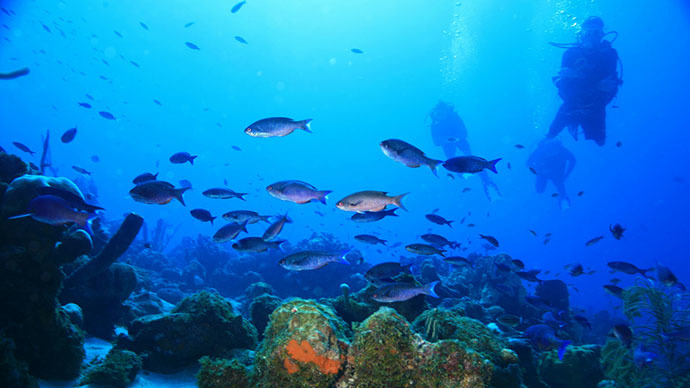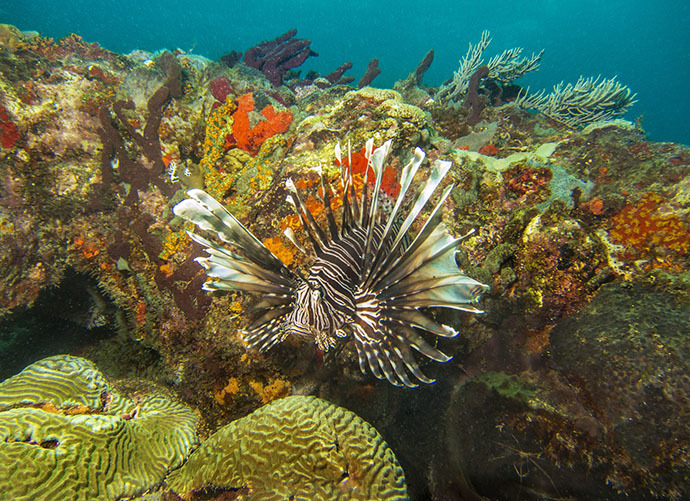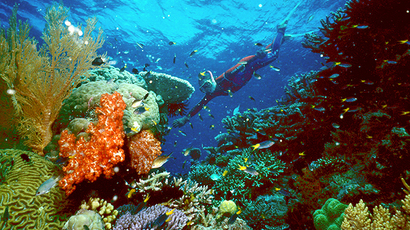Overfishing and pollution: Caribbean coral reefs may disappear in 20 years

Caribbean coral reefs are on course to disappear “in the next 20 years” because overfishing and pollution is killing off grazers such as parrot fish and sea urchins which are vital for their survival, a new environmental report claims.
“Even if we could somehow make climate change disappear tomorrow, these reefs would continue their decline,” said Jeremy Jackson, lead author of the report and the International Union for Conservation of Nature (IUCN)’s senior adviser on coral reefs. “We must immediately address the grazing problem for the reefs to stand any chance of surviving future climate shifts.”
The report – deemed “the most detailed and comprehensive study of its kind published to date,” was formed from more than 35,000 studies spanning 90 Caribbean locations – since 1970, reported the ICUN on its website.
ICUN collaborated with Global Coral Reef Monitoring Network (GCRMN) and the United Nations Environment Program (UNEP) in conducting the study.
Coral reefs in the region have deteriorated by more than 50 percent over the past 40 years. However, the report’s authors insist that further deterioration over the upcoming 20 years is avoidable.
“The rate at which the Caribbean corals have been declining is truly alarming,” says Carl Gustaf Lundin, Director of IUCN’s Global Marine and Polar Program. “But this study brings some very encouraging news: the fate of Caribbean corals is not beyond our control and there are some very concrete steps that we can take to help them recover.”

Protection from overfishing, restoring the parrotfish populations and cracking down on coastal pollution could all contribute to the ongoing survival of the reefs.
Grazers are essential and their removal breaks the equilibrium of the ecosystem, letting algae smother reefs, and the spike in bulk shipping in the 1960s and 1970s has contributed to the introduction of pathogens and “invasive species”.
“Barbuda is about to ban all catches of parrotfish and grazing sea urchins, and set aside one-third of its coastal waters as marine reserves,” said Ayana Johnson of the Waitt Institute’s Blue Halo Initiative.
The institute is working alongside Barbuda in the development of its new management plan. “This is the kind of aggressive management that needs to be replicated regionally if we are going to increase the resilience of Caribbean reefs,” she said.
However, the need for reef preservation stretches far beyond the Caribbean. In May, UNESCO condemned the Australian government’s approval of dumping dredged sand and mud in the waters of the Great Barrier Reef.
UNESCO has noted a “serious decline in the condition of the Great Barrier Reef, including in coral recruitment and reef-building across extensive parts of the property,” saying that the Reef’s World Heritage status could even be downgraded.














